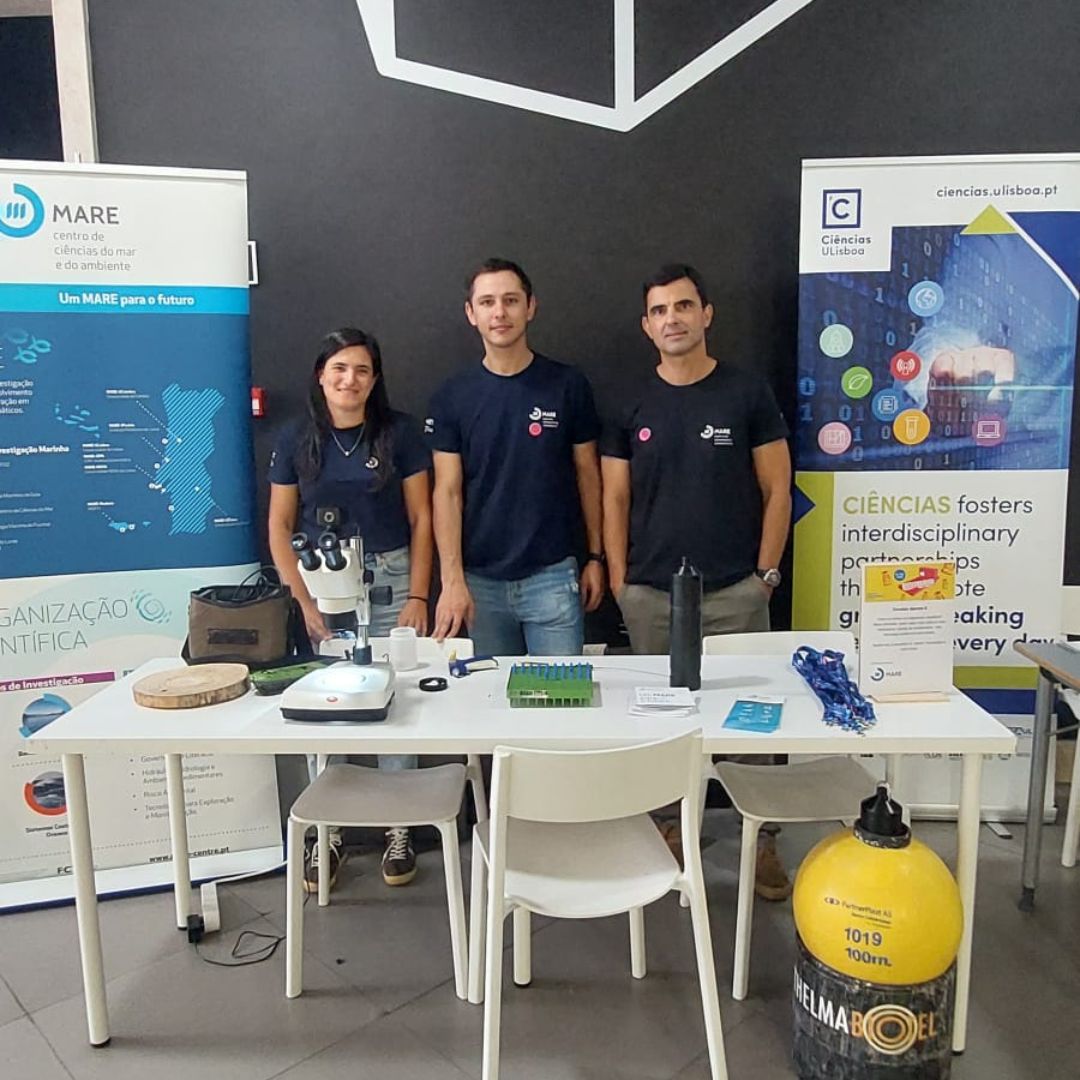MARE researchers participate in the 26th Anniversary of the Pavilion of Knowledge
MARE was present at the 26th anniversary of the Pavilion of Knowledge, celebrated on July 25, 2025, with an interactive activity dedicated to learning about the movement of fish in water. The initiative was part of the “Circuitos Abertos II” program, which brought together researchers, robots, and lots of live science.
Researchers Rita Almeida, João Marques, and Bernardo Quintella, from MARE/ARNET in SCIENCES, challenged visitors to become marine biologists for a day with the activity “In search of fish.” Through games and real scientific material, it was possible to learn how to study the movements and growth of fish using natural markers, such as otoliths, and artificial markers, such as electronic transmitters.
“We showed how otoliths store information about the environments fish have passed through throughout their lives and how we use artificial tags and networks of receivers scattered across estuaries and coastal areas to find out where they are and where they move,” explains researcher Rita Almeida.
The magnifying glass immediately caught the attention of children and adults alike. It contained several otoliths—calcified structures found inside the heads of fish—where rings can be observed and counted, just like in trees. The challenge was to identify these rings and, by counting them, discover the age of the fish to which they belonged. Right next to it was the detection game: a transmitter was hidden as if it were a fish, and visitors, like real biologists, had to find it using the biotelemetry receiver.
“It is a good opportunity for MARE, and for us researchers, to publicize our work,” adds researcher João Marques, emphasizing the value of science communication in direct contact with the public.
MARE's participation reinforces its mission to bring science closer to society, promoting ocean literacy and the value of research applied to the knowledge and conservation of aquatic biodiversity.
Text by Vera Sequeira
